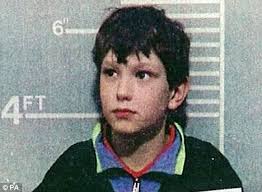Doli-incapax: When children cannot be responsible for criminal behaviour
It was reported in an article in the Sydney Morning Herald NSW that “in the past decade more than 45,000 ”criminal incidents” involving children under 14 have been recorded in NSW.” The article also stated that according to NSW Bureau of Crime Statistics and Research in 2010 more than “450 children under 14 were charged with criminal offences in NSW.”
In Australia, a juvenile is defined as a person between the age of 10 and 18 with the exception of Queensland where the age is 17. Children under the age of 10 are considered Doli incapax, meaning they cannot be legally held responsible for their actions, and are “incapable of crime” under legislation or common law.
According to our Laws, under the age of 10 children cannot form mens rea “as they do not yet have a sufficient understanding between ‘right and wrong.’” Therefore “criminal liability should be imposed only on persons who are sufficiently aware of what they are doing, and of the consequences it may have.”
Australian law recognises that children mature at varying ages, so from the age of 10 to 14 a juvenile offender would only be convicted if the prosecution successfully rebuts Doli incapax and proves the accused juvenile could adequately distinguish between right and wrong.
The article in the Sydney Morning Herald NSW also points out that some critics like the mayor of Wentworth Shire Council feel that children “’eight and below’ should be responsible for their crimes.” They believe that juvenile offenders understand the difference between right and wrong and therefore should legally face the same consequences as adults. An article by The Conversation states: that this “criticism was so strong in England and Wales that Doli incapax was abolished for 10- to 14-year-olds in 1998, following the outcry over the James Bulger case.”
However, juvenile crime is different from adult crime. Even if children as young as 10 might know the difference between right from wrong on some level, they should not be held responsible for criminal behaviour.
Why should juvenile offenders be treated differently from adult offenders?
Children are not fully conscious moral individuals, it takes time for them to fully develop emotionally, physically and psychologically. It takes a certain maturation for children to learn the difference between right and wrong, and at which age a child matures varies between individuals. According to Kelly Richards (2011), juveniles also do not fully understand the “difference between behaviours that are seriously wrong and those that are merely naughty or mischievous” until a certain age.
Juveniles also do not have the autonomy to choose even if they know an act might be wrong because as NSW Commissioner for Children and Young People, Megan Mitchell, argues ”a kid will do almost anything to maintain peer relations even if they are engaging in antisocial or criminal behaviour.”
Because juveniles lack the maturity to fully understand the consequences of their actions, they tend to take more risks and are highly influenced by peers in their attempt to fit in.
This is evidenced in the types of offences that juveniles tend to commit, which are more often “attention-seeking, gregarious, episodic and opportunistic” in nature (Cunneen & White 2007),”
A paper by the Australian Institute of Criminology states that two thirds of “offences for which juveniles were most frequently adjudicated by the Children’s Courts in Australia during 2007–08 were acts intended to cause injury (16%), theft (14%), unlawful entry with intent (12%), road traffic offences (11%) and deception (fare evasion and related offences—also 11%.”
Juvenile offences most commonly range from graffiti, vandalism, and break and enters, to shoplifting and fare evasion. Less than one-fifth of offences committed by children are crimes against the person.
In comparison adults are more likely than juveniles to perpetrate more serious offences like homicide or sexual assaults.
Juvenile justice interventions studies show that juveniles for the most part will out-grow offending behaviour and become law abiding citizens once they are adults. They also show that rates of offending usually peak in late adolescence and decline in early adulthood.
Therefore juvenile interventions should focus on reforming the child because the rate of recalcitrance for juvenile offenders is much lower than that for adult offenders.
Often juvenile offenders have a history of being physically and sexually assaulted, and other forms of victimisation. They also tend to have lower IQs and a higher incidence of mental health issues. Therefore juvenile offenders need to be protected and sheltered through law enforcement efforts, instead of being put in prison, or worse, with adult offenders. Interventions that are unsuitable, ineffective or too harsh can have long term residual effects that is likely to increase the chance of recalcitrance.
In NSW, specialised courts deal specifically with children who have been charged with Criminal offences. Some of our busiest Children’s Courts in Sydney are located in Parramatta, Campbelltown and Bidura.







